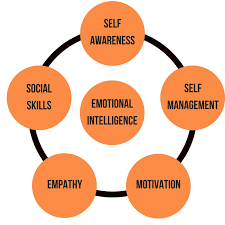Emotional intelligence is among the most sought-after skill among leaders in the professional world. The demand for emotional intelligence is no secret. Statistical proof and numerous researches show that how leaders with better emotional intelligence can transform their teams and even the whole company. Employees who have a higher level of emotional intelligence perform better than others and are better team players.
Here are 10 ways you can raise your emotional intelligence:
Practice Assertive Communication
This comes as no surprise and many people may already know how important assertiveness is in the workplace. People who are emotionally intelligent can assert their opinions without being perceived as aggressive or rude.
Respond instead of reacting to conflict.
It is not easy to contain your emotions when you are angry. However, people with high levels of emotional intelligence are aware of their feelings and they have learned the art of staying calm during these situations. The problem with reacting to conflicts is that people tend to make impulsive decisions in anger which they regret later. In times of conflict, the aim is to rectify the situation. So, not allowing your emotions to take over is important.
Utilize active listening skills.
The difference between an emotionally intelligent leader and an ordinary manager is that the former listen actively, while the later just waits for his turn so he can speak. You should also notice the body language of the other person. Body language can give a lot of clues of what the other person is trying to say. By observing body language, you can have more clarity.
Practice ways to maintain a positive attitude.
Staying positive in a hard time is very difficult. We have to practice maintaining a positive attitude and an optimistic outlook. Set the tone by having a great breakfast or by having meditation.
If your attitude is negative, it will affect your whole day. It is not only limited to you. It will also affect others. An emotionally intelligent employee knows how the other person is feeling. He can adapt a different attitude to match the situation.
Practice self-awareness.
Self-awareness is a crucial part of emotional intelligence. You cannot control your emotions if you cannot notice them. You need to know what is causing you to feel a certain way.
Self-awareness allows you to exploit your strengths and to improvise on your weaknesses. People who are highly self-aware can tackle extremely tough situations. A self-aware person will make the most out of the situation by utilising her strengths. Consider a mid-level employee who is sitting in an executive-level meeting for the very first time. She knows that she has good interpersonal skills which allow her to present his opinion in a persuasive way. So, she does not sit there quietly waiting for the meeting to end. Instead, she presents her idea with eloquence.
Self-awareness helps leaders influence others and make better decisions.
Never take constructive criticism too personally
People who are confident and emotional intelligent never take criticism too personally. They take feedback as a chance to grow. One of the reasons is that they already know their weaknesses, so when someone points it out, they know that they are not being criticized without any reason.
Empathize with others
Empathy is the most important element of emotional intelligence. Empathy shows your emotional strengths. Leaders who have empathy can influence anyone because it helps build trust, rapport and understand the opinions of other people, even if they are totally opposite.
Be approachable and sociable.
Emotionally intelligent people are social and approachable. Other employees are not scared of approaching them. They benefit from their social skills by expanding their network and then exploiting this network when needed. Emotionally intelligence people are outstanding in communication, whether it’s verbal or non-verbal. Developing emotional intelligence skills can be difficult but the journey is not complicated. Start by identifying your levels of emotional intelligence. Whether you want to evaluate your emotional intelligence or assess your employees to identify the leaders, you can hire an consulting and advisory firm to help you with a growth mindset and leadership assessment.








